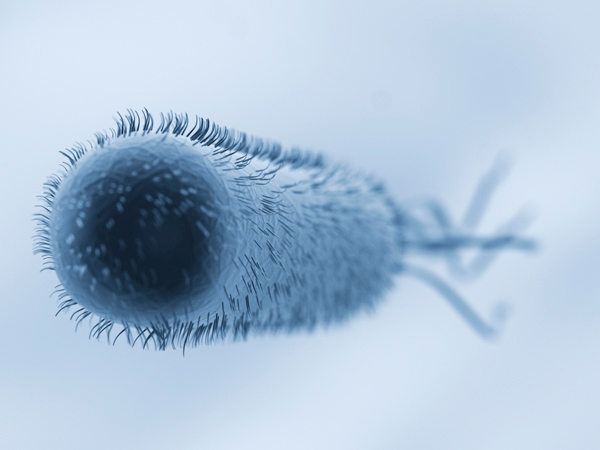E coli could convert sugar to biodiesel at 'an extraordinary rate,' say Stanford researchers
By By Louis Bergeron | 14 Nov 2011
When it comes to making biodiesel cheaply and efficiently enough to be commercially feasible, E coli may prove to be "the little bacterial engine that could," say Stanford researchers.
Biodiesel can be made from plant oil or animal fat - usually the former. Used cooking oil from restaurants is common, but for biodiesel to contribute significantly to reducing fossil fuel use, there needs to be a way to mass produce it from plant-derived raw materials.
 |
| E. coli bacteria act as a catalyst in generating biodiesel by converting inexpensive sugars into fatty acid derivatives that are chemically similar to gasoline. (Photo: iStock) |
The problem is that synthesising biodiesel is complicated. That is where E coli comes in.
The bacteria, often discussed in terms of the human digestive tract, also act as a catalyst in generating biodiesel by converting inexpensive sugars into fatty acid derivatives that are chemically similar to gasoline.
But E coli's natural conversion capability is not up to snuff, commercially speaking, and researchers tinkering with its internal machinery have yet to boost its capability enough to cross the commercial threshold.
So Chaitan Khosla, a Stanford professor of chemistry and of chemical engineering, decided to investigate whether there might be a natural limit that holds back E coli's conversion capabilities. In other words, does the basic catalytic engine in E coli have enough horsepower to do the job at the needed scale?
"The good news is that the engine that makes fatty acids in E coli is incredibly powerful," Khosla said. "It is inherently capable of converting sugar into fuel-like substances at an extraordinary rate. The bad news is this engine is subject to some very tight controls by the cell."
It turns out that like any high performance engine, the catalytic process in E coli can only attain peak efficiency when all the controls are tuned just right. The research is described in a paper published in Proceedings of the National Academy of Sciences.
Scientists don't yet understand how all the cellular controls operate. It will require a deeper understanding of the biochemistry of E coli than they have now to figure that out, Khosla said. But his research team is making progress homing in on the most promising part of the conversion process, thanks in part to a new approach they employed in their analysis.
The researchers managed to isolate all the enzymes and other molecular participants involved in the process that produces fatty acids in E coli and assemble them in a test tube for study.
"We wanted to understand what limits the ability of E coli to process sugar into oil. The question we were asking is analogous to asking what limits the speed of my Honda to 150 miles an hour and no faster?" Khosla said. "The most direct and powerful way to figure it out is to pull the biosynthetic engine out of the cell and put it through its paces in a test tube."
By doing so, the team was able to study how the enzymes involved in fatty acid biosynthesis performed when they were free from other cellular influences. That was critical to their analysis, because the products in question, fatty acids, are essentially soap, Khosla said, and too much of them would hurt the bacteria. That is why E coli has developed some very elaborate and effective ways to contain the amount of fatty acid biosynthesis inside the cell.
The fatty acids can't be pumped directly into your gas tank - cars and trucks won't run on soap, after all - but they are an excellent precursor to biodiesel.
Biodiesel has so far lagged behind ethanol as a means of cutting fossil fuel use in vehicles because ethanol is easier and cheaper to make. But biodiesel has a higher energy density and lower water solubility than ethanol, which offer significant advantages.
"It is closer in chemical properties to a barrel of oil from Saudi Arabia than any other biologically derived fuel," Khosla said. Thus it could easily be blended into diesel and gasoline, or used alone as a bona fide transportation fuel.
If researchers can figure out how to manipulate the cellular means of production in E coli, biodiesel could be made cheaply enough that the little engine of E coli could end up powering a lot of larger engines at far less cost to the environment than with fossil fuels.

















